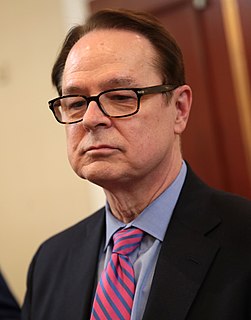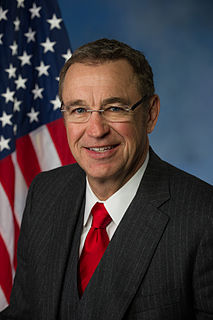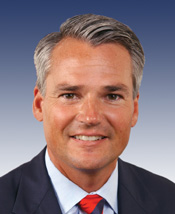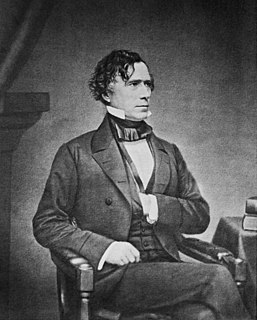A Quote by Larry Elder
But did the Founding Fathers ever intend for the federal government to involve itself in education, health care or retirement benefits? The answer, quite clearly, is no. The Constitution, in Article I, Section 8 - which contains the general welfare clause - seeks to restrain federal government, not expand it.
Quote Topics
Related Quotes
Does the U.S. Constitution stand for anything in an era of government excess? Can that founding document, which is supposed to restrain the power and reach of a centralized federal government, slow down the juggernaut of czars, health insurance overhaul and anything else this administration and Congress wish to do that is not in the Constitution?
It [the Constitution] didn't break free from the essential constraints that were placed by the founding fathers in the Constitution, at least as it's been interpreted, and the Warren court interpreted it in the same way that generally the Constitution is a charter of negative liberties. It says what the states can't do to you, it says what the federal government can't do to you, but it doesn't say what the federal government or the state government must do on your behalf. And that hasn't shifted.
Article I, Section 8, of the Constitution, of course, lays out the delegated, enumerated, and therefore limited powers of Congress. Only through a deliberate misreading of the general welfare and commerce clauses of the Constitution has the federal government been allowed to overreach its authority and extend its tendrils into every corner of civil society.
Constitutions are violated, and it would be absurd to expect the federal government to enforce the Constitution against itself. If the very federal judges the Constitution was partly intended to restrain were the ones exclusively charged with enforcing it, then "America possesses only the effigy of a Constitution." The states, the very constituents of the Union, had to do the enforcing.
The Founding Fathers realized that "the power to tax is the power to destroy," which is why they did not give the Federal government the power to impose an income tax. Needless to say, the Founders would be horrified to know that Americans today give more than a third of their income to the Federal government.
The tenth amendment said the federal government is supposed to only have powers that were explicitly given in the Constitution. I think the federal government's gone way beyond that. The Constitution never said that you could have a Federal Reserve that would have $2.8 trillion in assets. We've gotten out of control.
The Constitution contains no 'dignity' Clause, and even if it did, the government would be incapable of bestowing dignity. ... Slaves did not lose their dignity (any more than they lost their humanity) because the government allowed them to be enslaved. Those held in internment camps did not lose their dignity because the government confined them. And those denied governmental benefits certainly do not lose their dignity because the government denies them those benefits.
The real reason to abolish departments like Energy and Education is not to promote efficiency, nor even to save taxpayers’ money. It is that many agencies perform functions that are not Federal responsibility. The founders delegated to the Government only strictly defined authority in Article I, Section 8, of the Constitution. Search the entire Constitution, and you will find no authorization for Congress to subsidize the arts, finance and regulate education or invest tax revenues in energy research.
The proposed constitution, therefore, even when tested by the rules laid down by its antagonists, is, in strictness, neither a national nor a federal constitution; but a composition of both. In its foundation it is federal, not national; in the sources from which the ordinary powers of the government are drawn, it is partly federal, and partly national; in the operation of these powers, it is national, not federal; in the extent of them again, it is federal, not national; and finally, in the authoritative mode of introducing amendments, it is neither wholly federal, nor wholly national.
Conservatism is about the basic rights of individuals. God created us. As far as the government goes, the Founding Fathers based the Constitution off of Christian values. It goes hand-in-hand. As far as the Republican Party? I felt connected to it because individual freedom should not be legislated by the federal government.
The constitutionality and propriety of the Federal Government assuming to enter into a novel and vast field of legislation, namely, that of providing for the care and support of all those ... who by any form of calamity become fit objects of public philanthropy. ... I cannot find any authority in the Constitution for making the Federal Government the great almoner of public charity throughout the United States. To do so would, in my judgment, be contrary to the letter and spirit of the Constitution and subversive of the whole theory upon which the Union of these States is founded.
Until the 1930s, the Constitution served as a major constraint on federal economic interventionism. The government's powers were understood to be just as the framers intended: few and explicitly enumerated in our founding document and its amendments. Search the Constitution as long as you like, and you will find no specific authority conveyed for the government to spend money on global-warming research, urban mass transit, food stamps, unemployment insurance, Medicaid, or countless other items in the stimulus package and, even without it, in the regular federal budget.

































